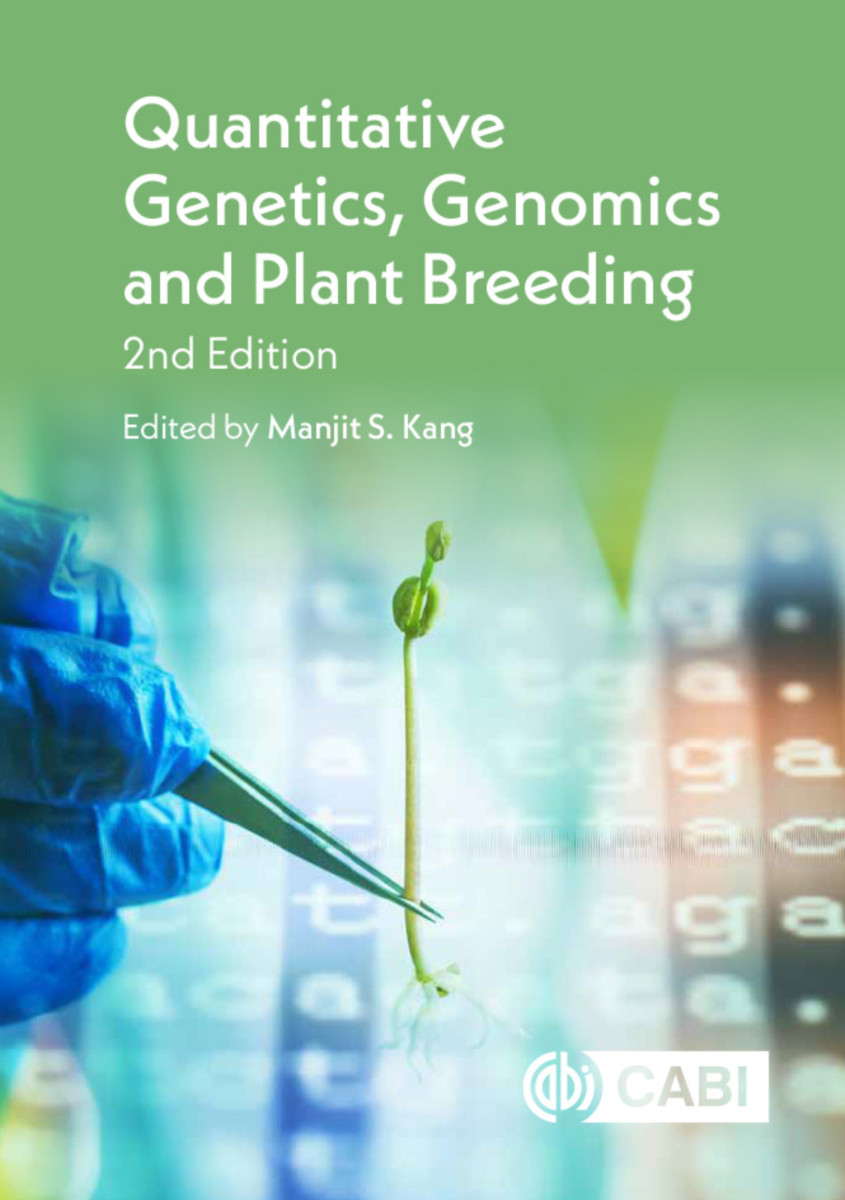Quantitative Genetics, Genomics and Plant Breeding Edition 2
- Publisher
CABI - Published
12th May 2020 - ISBN 9781789240214
- Language English
- Pages 416 pp.
- Size 6" x 9"
Since the first edition of this book was published in 2002, the field of quantitative genetics, genomics and breeding has changed markedly. In response, 16 chapters of this second edition are entirely new and four chapters have been updated.
This book presents state-of-the-art, authoritative chapters on contemporary issues in the broad areas of quantitative genetics, genomics and plant breeding. Part 1 emphasizes the application of genomics, and genome and epigenome editing techniques, in plant breeding; bioinformatics; quantitative trait loci mapping; and the latest approaches of examining and exploiting genotype-environment interactions. Part 2 represents the intersection of breeding, genetics and genomics. This section describes the use of cutting-edge molecular breeding and quantitative genetics techniques in wheat, rice, maize, root and tuber crops and pearl millet. Overall, the book focuses on using genomic information to help evaluate traits that can combat biotic/abiotic stresses, genome-wide association mapping, high-throughput genotyping/phenotyping, biofortification, use of big data, orphan crops, and gene editing techniques. The examples featured are taken from across crop science research and cover a wide geographical base.
This book contains:
- chapters by expert authors from six continents;
- state-of-the-art information on topical areas relative to crop improvement;
- coverage of genome-editing techniques.
1: Vignettes of the History of Genetics
Part I: Quantitative Genetics, Genomics and Bioinformatics
2: Developments in Genomics Relative to Abiotic Stress-Tolerance Breeding in Maize during the Past Decade
3: Quantitative Genetics, Molecular Techniques and Agronomic Performance of Provitamin-A Maize in sub-Saharan Africa
4: Quantitative Genetics in Improving Root and Tuber Crops
5: Novel Breeding Approaches for Developing Climate-resilient Rice
6: Genomic Selection in Rice: Empirical Results and Implications for Breeding
7: Exploiting Alien Genetic Variation for Germplasm Enhancement in Brassica Oilseeds
8: Advances in QTL Mapping and Cloning
9: Bioinformatics and Plant Breeding
10: The Importance of Plant Pan-genomes in Breeding
11: Bioinformatics Approaches for Pathway Reconstruction in Orphan Crops — A New Paradigm
Part II: Breeding, Genome - Epigenome Editing and G × E Interaction
12: Food and Health: The Role of Plant Breeding
13: Biofortified Pearl Millet Cultivars Offer Potential Solution to Tackle Malnutrition in India
14: Genome Editing Technologies for Crop Improvement
15: Epigenome Editing in Crop Improvement
16: Genotype–Environment Interaction and Stability Analyses: An Update
17: Prediction with Big Data in the Genomic and High-throughput Phenotyping Era: A Case Study with Wheat Data
18: Design and Analysis of Multi-Year Field Trials for Annual Crops
19: Advances in the Definition of Adaptation Strategies and Yield-stability Targets in Plant Breeding
20: Biplot Analysis of Multi-environment Trial Data
Manjit S. Kang
Manjit S. Kang, PhD currently holds an honorary Adjunct Professorship in the Department of Plant Pathology, Kansas State University, Manhattan. Manjit does research in quantitative genetics, crop breeding, genotype-by-environment interaction and stability analysis, and biotechnology. He has published 162 peer-reviewed (refereed) journal articles in prestigious international journals, 42 book chapters/encyclopedia essays, and 135 other technical publications. In addition, he has edited or co-edited and authored or co-authored 13 books, including Genotype-by-Environment Interaction (CRC), Quantitative Genetics, Genomics and Plant Breeding (CABI), Breeding Major Food Staples (Blackwell), Combating Climate Change (CRC). He is the editor of Journal of Crop Improvement and technical editor of Crop Science.


